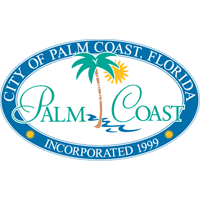
To include your event in the Briefing and Live Calendar, please fill out this form.
Weather: Partly sunny. Highs in the lower 80s. Northeast winds 5 to 10 mph. Monday Night: Mostly cloudy. Lows in the upper 60s. Northeast winds 5 to 10 mph.
- Daily weather briefing from the National Weather Service in Jacksonville here.
- Drought conditions here. (What is the Keetch-Byram drought index?).
- Check today’s tides in Daytona Beach (a few minutes off from Flagler Beach) here.
- Tropical cyclone activity here, and even more details here.
Today at a Glance:
General Election Early Voting is available today in Bunnell, Palm Coast and Flagler Beach from 10 a.m. to 6 p.m. at five locations. Any registered and qualified voter who is eligible to vote in a county-wide election may vote in person at any of the early voting site, regardless of assigned precinct. According to Florida law, every voter must present a Florida driver’s license, a Florida identification card or another form of acceptable picture and signature identification in order to vote. If you do not present the required identification or if your eligibility cannot be determined, you will only be permitted to vote a provisional ballot. Don’t forget your ID. A couple of secure drop boxes that Ron DeSantis and the GOP legislature haven’t yet banned (also known as Secure Ballot Intake Stations) are available at the entrance of the Elections Office and at any early voting site during voting hours. The locations are as follows:
- Flagler County Elections Supervisor’s Office, Government Services Building, 1769 East Moody Boulevard, Bunnell.
- Flagler County Public Library, 2500 Palm Coast Pkwy NW, Palm Coast.
- Palm Coast Community Center, 305 Palm Coast Parkway NE.
- Palm Coast’s Southern Recreation Center, 1290 Belle Terre Parkway.
- Flagler Beach United Methodist Church, 1520 South Daytona Avenue, Flagler Beach.
See a sample ballot here. See the Live Interviews with all local candidates below.
Palm Coast Mayor Cornelia Manfre Mike Norris Palm Coast City Council Ty Miller, Dist. 1 Jeffrey Seib, Dist. 1 Ray Stevens, Dist. 3 Andrew Werner, Dist. 3 Backgrounders Manfre’s and Norris’s Final Clash Temper and Temperament at Tiger Bay Forum Stevens and Werner Sharpen Differences |
The Bunnell City Commission meets at 7 p.m. at the Government Services Building, 1769 East Moody Boulevard, Bunnell, where the City Commission is holding its meetings until it is able to occupy its own City Hall on Commerce Parkway in 2025. To access meeting agendas, materials and minutes, go here.
The Flagler County Beekeepers Association holds its monthly meeting from 6 to 8 p.m. at the Flagler Agricultural Center, 150 Sawgrass Rd., Bunnell (the county fairgrounds). This is a meeting for beekeepers in Flagler and surrounding counties (and those interested in the trade). The meetings have a speaker, Q & A, and refreshments are served. It is a great way to gain support as a beekeeper or learn how to become one. All are welcome. Meetings take place the fourth Monday of every month. Contact Kris Daniels at 704-200-8075.
Nar-Anon Family Groups offers hope and help for families and friends of addicts through a 12-step program, 6 p.m. at St. Mark by the Sea Lutheran Church, 303 Palm Coast Pkwy NE, Palm Coast, Fellowship Hall Entrance. See the website, www.nar-anon.org, or call (800) 477-6291. Find virtual meetings here.
Notably: “‘Theodore! with all thy faults,’ was the one-line editorial in which the New York Sun had expressed its presidential preference in the election of the previous year,” Barbara Tuchman tells us. The Washington Post couldn’t bring itself to say even that much about Kamala Harris, who it was expected to endorse until Jeff Bezos, the Amazon owner who also owns the Post, decided to let huis newspaper’s endorsements end in darkness. I share Clay Jones’s misgivings as to Bezos’s motive (see the caption below Clay’s cartoon), but not the conclusion: newspaper endorsements seem to me to have run their course, if they ever had a course to run. There’s something odd about a group of editorialists sitting around a table, devising an opinion and pretending to speak for the institution. It’s a bit arrogant, quite a bit presumptuous, when it goes beyond the reasoned arguments that a newspaper should make about a candidate, as newspapers do all the time through their columns and editorials. More than 90 percent of newspapers endorsed Dewey in 1948. Truman pulled it off. All that told you was how far to the right the newspaper class was, always had been through the Roosevelt years, continued to be during the Eisenhower years. The New York Times endorsed Eisenhower seven months before the Democratic convention, and before knowing who the Democratic nominee would be (it would turn out to be Adlai Stevenson, a more intelligent, better prepared and funnier candidate than we’ve had in most presidential contests). Sen. Henry Cabot Lodge (was he the son or the grandson of the fascistic senator of the same name who made life hell for Wilson and America?) had just managed to draft Eisenhower for the run, a mere few days after Eisenhower, that scion of honesty, had written Truman that the chances of his entering politics were “so remote as to be negligible.” The Times claimed that “a clear and unequivocal statement” from Eisenhower was still lacking, but its lead editorial, titled “Eisenhower,” gave its own unequivocal statement: Eisenhower, it claimed, attributing the conclusions of a few people around its editorial table to “the man American people who are convinced” of it, “is superbly equipped to carry the great responsibilities of th Presidency.” The editorial ends: “If Dwight Eisenhower should be nominated by the Republican party as its candidate for President, we shall support him enthusiastically.” Eisenhower had yet to repudiate Joe McCarthy. He would not do so at any point dring the campaign. When the Times did officially endorse Eisenhower in October, 15,000 people wrote the paper urging a reversal (according to the Susan Tifft and Alex Jones 1999 biography of the paper). The paper received 2,200 phone calls and telegrams in a single day urging reversal. All but 155 were for Adlai Stevenson. None of that is a valid argument for or against endorsing: it’s just an interesting anecdote in the trade. Eisenhower took 34 million votes to Stevenson’s 27 million, 442 electoral votes to 89, and he had Nixon on the ticket. That should tell you something about the electorate even then. With the dilution of newspapers’ relevance, the elimination of editorial boards, the metastasizing of opinions, everything becomes an implied endorsement, so nothing is, or at least nothing has to be. Let the news pages do their work, and let voters put their chips where they may. The New York Times has been screaming bloody murder about the horrors and terrors of the coming Trump presidency. But no endorsement will change the course of this election. If anything, I suspect the alarms are filling Trump’s backers with glee and adding to them. That’s how mob delirium works.
—P.T.
View this profile on Instagram
![]()
The Live Calendar is a compendium of local and regional political, civic and cultural events. You can input your own calendar events directly onto the site as you wish them to appear (pending approval of course). To include your event in the Live Calendar, please fill out this form.
January 2026
Palm Coast City Council Workshop
Community Traffic Safety Team Meeting
Flagler Beach United Methodist Church Food Pantry
St. Johns River Water Management District Meeting
Flagler County School Board Workshop: Agenda Items
Weekly Chess Club for Teens, Ages 10-18, at the Flagler County Public Library
Flagler Beach Library Book Club
Flagler County Planning Board Meeting
Random Acts of Insanity Standup Comedy
Public Safety Coordinating Council Meeting
River to Sea Transportation Planning Organization (TPO) Bicycle/Pedestrian Advisory Committee Meeting
Separation Chat: Open Discussion
The Circle of Light A Course in Miracles Study Group
For the full calendar, go here.

And, unfortunately, the American press has been more often hesitant than aggressive in pursuit of its constitutional obligation to act as a check on the power of government. All too often, the press has been a collaborator in the national-security mystique, rather than a challenger of it.
–From Tom Wicker’s On Press (1978).









































Pogo says
@…afflict the comfortable, and comfort the afflicted…
And gag a pariah who annoys a Brahmin.
Winter is here.
Jacopo Bianchi says
Great article! Really enjoyed how you brought attention to the current media landscape. Just curious, do you think this shift in the newspaper’s approach will change the way endorsements are viewed in future elections? It’s certainly thought-provoking!
Ray W, says
Newsweek has additional reporting on Florida’s current homeowner’s insurance situation, which is, as many FlaglerLive readers might agree, constantly evolving.
As a foundational statement, in 2002, Citizens Property Insurance Corporation (Citizens) was created by legislative act to provide insurance coverage only to “eligible homeowners” who could not find insurance coverage on the open market. I infer from this that Citizens was never intended to offer policies to anyone; it was available only to those who fit into a narrowing legislative definition.
Regardless of language of the narrowing definition, the number of Citizens policies soared in recent years as private, or free-market, insurers either vastly raised rates, or went bankrupt, or voluntarily left the state. In September 2019, Citizens covered 421,333 Florida homes. Five years later to the month, Citizens had 1,263,055 policies in force, and dwindling.
Why is the policy count dwindling?
During Florida’s 2024 legislative session, our legislative leaders passed new legislation designed to lower the number of homeowners covered by Citizens, and our Governor signed it into law. One aspect of the new act created what Citizens calls a “Depopulation Program” that is to help match policyholders with private-market insurance companies that offer coverage for their homes.
On its face, the new legislation sounds like a winner. Citizens is to create a brokerage that will help policy holders find new coverage in a competitive free marketplace of private insurance.
According to Newsweek, the new parameters are simple. If the brokerage helps a homeowner find insurance coverage that is no more than 20% higher than the policy rate offered by Citizens, the homeowner must agree to pay up to 20% more for insurance, i.e., they have leave Citizens to go with the more expensive private insurance coverage.
If the lowest available free-market policy rate is more than 20% of the rate offered by Citizens, the homeowner can stay with Citizens.
Obviously, if the rate offered by the free-market insurance company is less than the Citizens rate, the homeowner should leave Citizens for the lesser rate.
Newsweek reports that in the first six months of 2024, Citizens mailed 217,623 depopulation letters to policy holders.
75,955 searched for free-market policies, but the lowest offered premium was more than 20% higher than their Citizens premium; they were allowed to stay with Citizens.
35,431 homeowners received offers equal to or below their Citizens rate; they had to go, but at either no cost to them or at a savings.
87,791 received offers that were higher than their Citizens rate, but not more than 20% higher; they had to accept the more expensive free-market rate and leave Citizens.
10,233 “received offers sub 20 percent”, according to Newsweek, but since the reporter did not define what “sub 20 percent” referred to, that category is vague. Was it 20% less than the rate offered by Citizens to individual homeowners, which would be a considerable savings to each homeowner? Was it less than the 20% of the threshold of 20% higher than the Citizens rate as established by law?
According to Newsweek, some homeowners they contacted were not only forced by the new law to pay more, but they also said they received fewer coverage options than that offered by Citizens. They were paying more for less.
Citizens told Newsweek that there was no target number for depopulation under the new law, but also said “[w]e estimate that there are between 450,000 and 600,000 policies in Florida that would be considered residual in a healthy insurance marketplace.” That’s a lot of Florida homeowners who may be forced by law to pay more for their homeowners’ insurance.
But all of this avoids the obvious. The national average cost of homeowner’s insurance for a $300,000 home is $2,285. Florida’s average premium is $3,242 more than the national average: $5,527. In some Florida regions, the average cost insurance is above $8000 per year.
Make of this what you will. Me? It is true that if Citizens took a huge hit from a hurricane and if its reserve pool of money, plus whatever reinsurance coverage it could obtain, was not enough to cover all of the claims, Florida legislators might be forced to pass legislation funding the extra coverage. That possibility carries the specter of raising taxes or borrowing against the future.
What to do! Kick out some of the policyholders to lower the exposure, our governor and the legislature said.
If homeowners on a budget, i.e., retirees, can’t afford the higher rates after they are forced out of Citizens coverage, well, they can go without insurance and FEMA will offer aid in a catastrophe. Can it be argued that Florida’s leaders are like so many other state leaders, in that their first option is to shift costs onto the federal government and then claim that federal spending is out of control?
Newsweek interviewed a 71-year-old retiree who asked to remain unidentified. He told the reporter that he watched a friend having to “‘basically relinquish’ their home due to unaffordable home insurance, he now fears that the worst could happen. We are like a lot of older people here trying to live on very fixed incomes and now seeing what ‘wealth’ we have, [like] the value of our properties, drain away and are powerless to stop it, he said.”
Ray W, says
Reports have it that now that West Texas Intermediate crude oil futures have dropped to $67.02 per barrel as of today, the Biden administration has committed to buying another 3 million barrels of oil over time to partially restock the Strategic Petroleum Reserve (SPR).
The SPR was drawn down by one million barrels of oil over 180 days in the early stages of OPEC’s manipulation of international crude oil production totals. A million barrels of oil per day likely kept the price of crude oil somewhat down, but it was relatively little compared to the six million barrels of oil per day that OPEC withdrew from the marketplace in its effort to jack up prices.
Yes, three million barrels is a drop in the SPR bucket, but Congress gives the administration only so much money at a time to purchase oil to replenish the SPR. When the Biden administration originally released the oil from the SPR, it was sold at much higher prices and the money was sent the Treasury, not to a fund set aside to repurchase oil in the future. Selling the oil at $85 per barrel when the oil was needed and restocking it at $67 a barrel makes sound economic sense to me.
As always, make of this what you will.
Ray W, says
Thank you, Mr. Tristam, for your descriptive use of the phrase “mob delirium” in the context of Trump followers.
Ever curious, I looked up the definition of delirium.
In a medical context, the National Institute of Health defines it as “a clinical syndrome that usually develops in the elderly. It is characterized by an alteration of attention, consciousness, and cognition, with a reduced ability to focus, sustain, or shift attention.”
Dictionary.com defines delirium as “a disturbed state of mind or consciousness, especially an acute, transient condition associated with fever, intoxication, and certain other physical disorders, characterized by symptoms such as confusion, disorientation, agitation, and hallucinations.”
Delirium itself is not a recognized medical condition; it is a symptom of an underlying condition.
One synonym for delirium is “derangement.”
It might be used in a sentence in this way: In their fever-induced dreams, Trump rally attendees swooned in a state of delirium over the deranged and hallucinatory thought that the promise of mass deportation of 10 million undocumented immigrants will not harm our national economy.